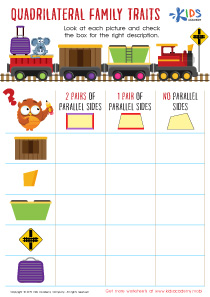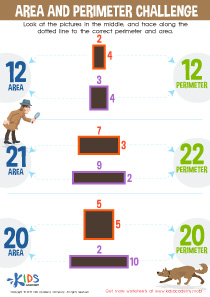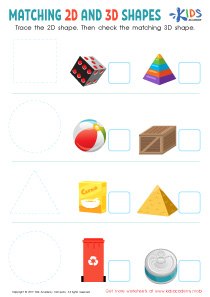Basic Math Skills Fractions of Shapes Worksheets for Ages 5-6
4 filtered results
-
From - To
Introduce your child to the essential concept of fractions with our engaging "Fractions of Shapes Worksheets for Ages 5-6." These worksheets, designed specifically for young learners, provide a fun and interactive way to understand and visualize fractions. Each worksheet features colorful shapes divided into equal parts to help kids grasp the principles of halves, thirds, and quarters effortlessly. Perfect for developing basic math skills, these exercises not only boost their confidence but also lay a strong foundation for future math success. Get started today with our expertly crafted worksheets and unlock your child's potential in mathematics!
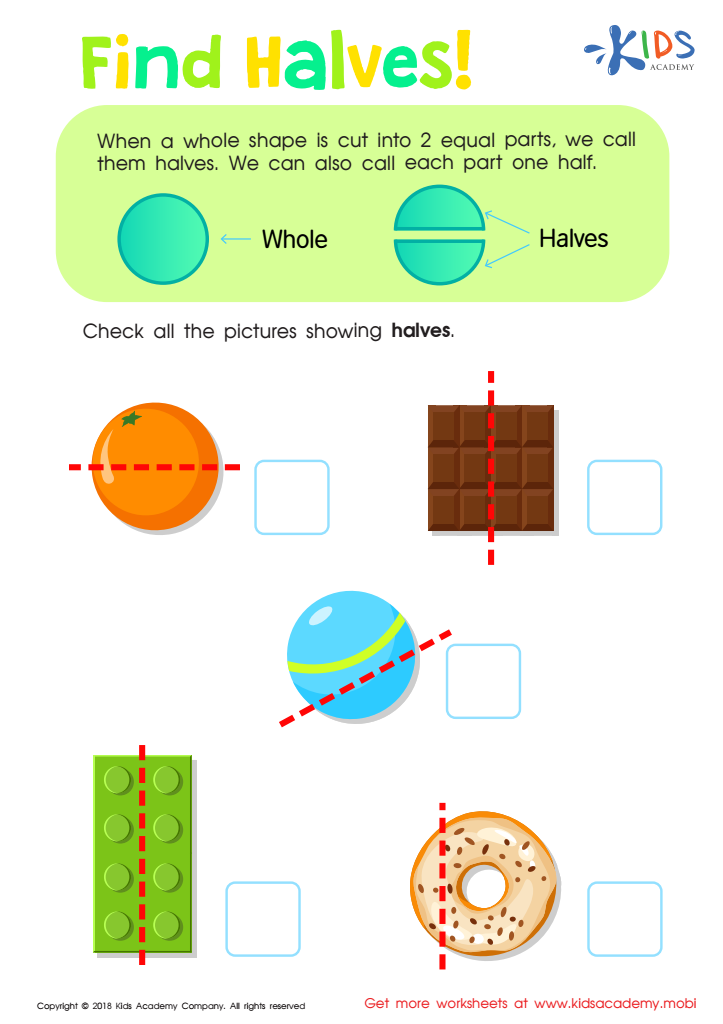

Find Halves Worksheet
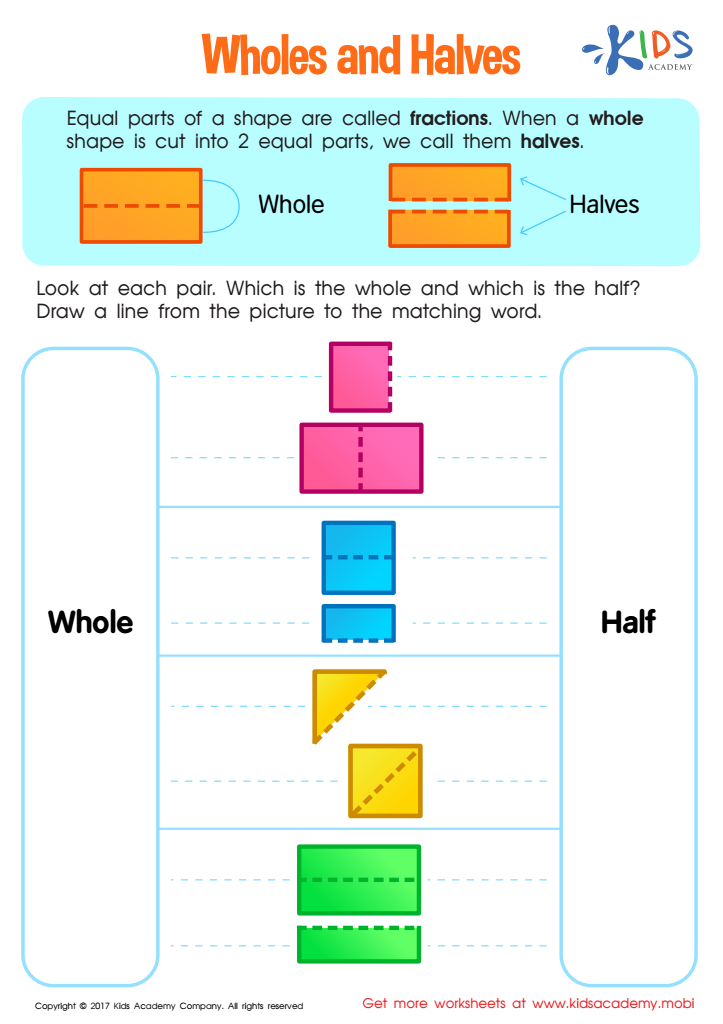

Wholes and Halves Worksheet
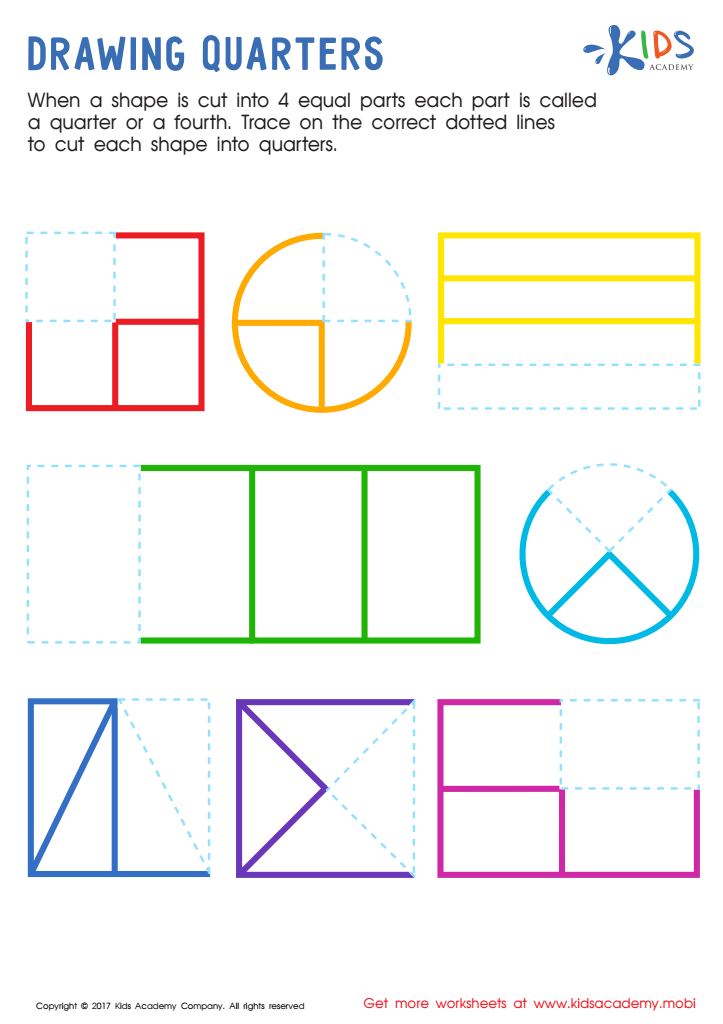

Drawing Quarters Worksheet
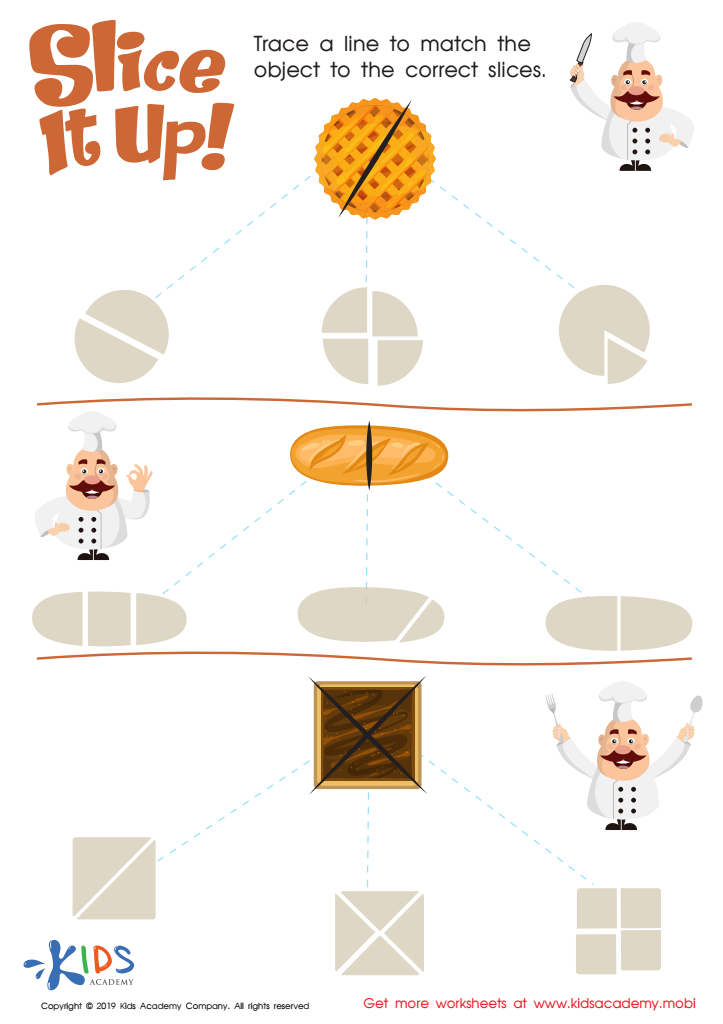

Slice It Up Worksheet
Parents and teachers should prioritize teaching basic math skills involving fractions of shapes to children aged 5-6 because laying a strong mathematical foundation at an early age fosters future academic success. Introducing fractions of shapes helps children understand key mathematical concepts such as parts of a whole, equivalence, and proportionality. This early exposure can demystify more complex mathematical ideas they will encounter later in their educational journey by providing hands-on and visual intuition.
Understanding fractions through tangible shapes encourages visual learning, making abstract concepts more concrete for young minds. When children cut a pizza into slices or divide a square into quarters, they grasp fractions materially, bridging the gap between theoretical concepts and real-world application. This approach supports cognitive development, pattern recognition, and problem-solving skills.
Moreover, early math competency builds students' confidence. Young learners who grasp basic fractions feel capable in their math abilities, fostering a positive attitude towards the subject. Positive early experiences in math can ward off math anxiety, which is common in older students. Parents and teachers play a crucial role here; engaging activities like dividing shapes in fun, interactive ways help maintain children's natural curiosity and eagerness to learn.
By investing time in these foundational skills, parents and educators set the stage for a lifetime of mathematical thinking and reasoning, essential for both academic achievements and everyday decision-making.
 Assign to My Students
Assign to My Students









